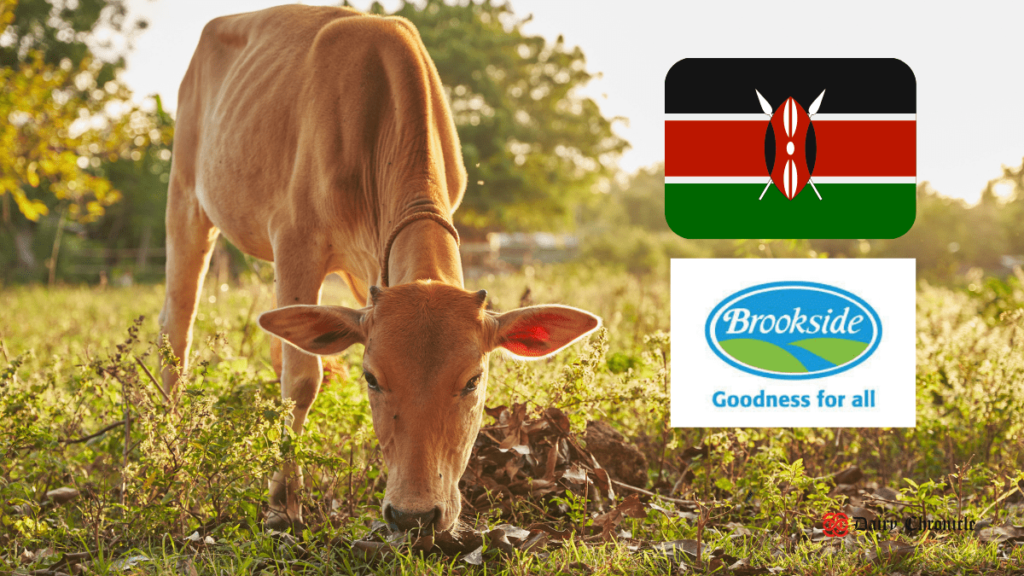Brookside Uganda accuses Kenya of unfairly restricting its milk imports through selective issuance of import permits, impacting trade between the two nations.
Brookside Uganda, a subsidiary of the Kenyatta-owned Brookside Dairy group, has raised allegations against the Kenyan authorities for discriminatory practices in issuing import permits. The company claims that the Kenya Dairy Board (KDB) has selectively restricted its Dairy Fresh milk brand from entering the Kenyan market, while other Ugandan brands, such as Lato and Dairy Top, continue to receive approvals without issue. Brookside Uganda argues that these actions create an unfair barrier to trade, negatively impacting their business operations. As a leading dairy processing company in East Africa, Brookside Dairy, which operates in Kenya, Uganda, and Tanzania, is involved in the collection, processing, and marketing of milk and dairy products. The company, owned by the Kenyatta family, is known for its wide range of dairy products under several brands, including Dairy Fresh, and is committed to quality and sustainability in the dairy sector.
Concerns Over Trade Restriction’s
Brookside Uganda’s concerns center on what they perceive as a biased issuance of import permits by the Kenya Dairy Board. According to Brookside, the KDB has not responded to their 114 export permit applications for its Dairy Fresh brand, despite repeated follow-ups. This, they argue, effectively blocks their products from reaching Kenyan consumers. Meanwhile, other Ugandan dairy brands have reportedly continued to receive the necessary permits to operate in Kenya.
Margaret Kibogy, Managing Director of the Kenya Dairy Board, has dismissed these claims, maintaining that trade between Kenya and Uganda remains unhindered. However, Brookside insists that the lack of response to their permit applications contradicts this assertion, pointing to a possible bias in the regulatory process.
Impact on Local Markets
Traders in regions like Rift Valley and Western Kenya have observed that while brands like Lato and Dairy Top are readily available, Brookside’s Dairy Fresh products are missing from the shelves. Simon Gathuita, a wholesaler in Nakuru, noted a decline in supply from Kampala, which has led to consumer inquiries about the availability of Fresh Dairy products. This discrepancy has raised questions about the transparency of the permit issuance process and the motives behind the KDB’s decisions.
Brookside’s Stance and Future Expectations
Brookside Limited’s General Manager in Kampala, Benson Mwangi, has reiterated the company’s commitment to serving both the Ugandan and Kenyan markets. Mwangi expressed hope that the current trade barriers would be resolved following the provisions of the communiqué signed by the presidents of Kenya and Uganda on May 17, 2024. The agreement aimed to foster better trade relations and address existing trade challenges, including those in the dairy sector.
Ongoing Trade Tensions
The dispute between Kenya and Uganda over dairy imports is part of a broader issue involving non-tariff barriers that have strained trade relations between the two East African nations. Although Kenya remains Uganda’s largest trading partner in the region, such barriers hinder the full potential of bilateral trade. The ongoing restrictions and delays in permit issuance for Ugandan dairy products are perceived as protectionist measures that contravene the spirit of regional trade agreements.
Economic Impact and Call for Resolution
Kenya’s Economic Survey 2024 highlights the significant trade volumes between the two countries, with Kenya’s exports to Uganda reaching KSh 126.3 billion last year, up from KSh 97.2 billion in 2023. Imports from Uganda also showed a modest increase, reflecting the interconnectedness of the two economies. As the trade standoff continues, stakeholders are urging both governments to act swiftly to resolve the issue, ensuring a fair trading environment that benefits producers and consumers alike.
The alleged trade restrictions by Kenya on Ugandan dairy imports have sparked significant concern among industry stakeholders. With calls for transparency and fairness in the issuance of import permits, it remains to be seen how the Kenyan and Ugandan governments will navigate this latest trade dispute to foster better bilateral relations and support regional economic integration.



